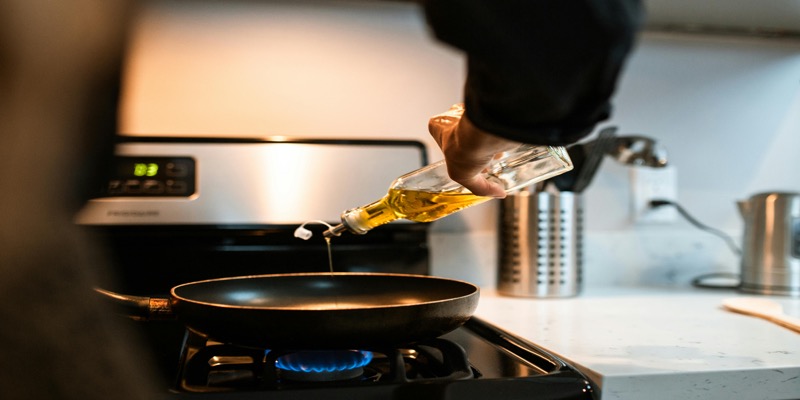
A Persistent Misconception: "Fats Make You Fat"
For decades, fats have been blamed for all ills: weight gain, cholesterol, cardiovascular disease... As a result, millions of people have adopted "light" diets, low in lipids but rich in sugars and processed products.
And yet, the results are clear:
- Global obesity has exploded
- Type 2 diabetes has become an epidemic
- Digestive and inflammatory disorders have multiplied
👉 It's not fat that's responsible. It's the type of fat, the dietary context, and the quality of products consumed.
What oils Really Are
Vegetable oils are composed of 99% lipids. Lipids are essential nutrients that play a role in:
- Building cell membranes
- Transporting fat-soluble vitamins (A, D, E, K)
- Hormone production
- Inflammation regulation
- Brain and nervous system function
Completely depriving yourself of oil means unbalancing your metabolism, weakening your digestion, and slowing your regenerative capacity.
Good Fats: Your Weight Loss Allies
Contrary to popular belief, quality fats can help you lose weight. Why? Because they:
- Satisfy quickly: they slow gastric emptying and stabilize blood sugar
- Prevent cravings: by reducing insulin spikes
- Promote fat burning: by activating lipid metabolism
Foods rich in good fats include:
- Avocados
- Fatty fish
- Nuts and almonds
- Olive oil
- Fermented sheep or goat products
Fats to Avoid: Refined, Oxidized, Pro-Inflammatory
Not all oils are equal. Some are ultra-processed, heated to high temperatures, and unbalanced in omega-6.
The main ones to avoid:
- Sunflower oil
- Corn oil
- Soybean oil
- Industrial margarines
These oils are often used in frying, cookies, industrial sauces... They promote chronic inflammation, hormonal imbalances, and cardiovascular disease.
Olive Oil: A Nutritional and Cultural Treasure
Olive oil is at the heart of the Mediterranean diet — recognized worldwide for its protective effects. It is:
- Rich in monounsaturated fatty acids
- Loaded with polyphenols with antioxidant effects
- Stable for gentle cooking
- Anti-inflammatory, anti-cancer, cardio-protective
In the Moroccan context, it is accessible, culturally integrated, and ideal for healthy and flavorful cooking.
One tablespoon of olive oil per day can improve cardiovascular health, reduce joint pain, and strengthen immunity.
How to Use Oils Properly in Daily Life?
Here are some simple guidelines:
| Usage | Recommended Oils |
|---|---|
| Gentle cooking | Olive oil, coconut oil |
| Raw seasoning | Olive oil, rapeseed oil, flaxseed oil (in small quantities) |
| To avoid | Refined oils, industrial frying, margarine |
✅ Favor cold-pressed oils, organic if possible, and stored away from light.
In Summary
Depriving yourself of oil is not a health strategy. What you need is to make the right choices:
- Choose natural, unprocessed fats
- Avoid pro-inflammatory industrial oils
- Integrate good fats into a balanced diet, rich in fiber and low in refined sugars
Family Clinic Supports You
We offer:
- Nutritional brochures on good food choices
- Digestive and metabolic monitoring
- Menus adapted to each profile (diabetic, faster, senior...)
Warm regards,
Dr. Said-Alaoui Moulay Abdellah and the Family Clinic Team
